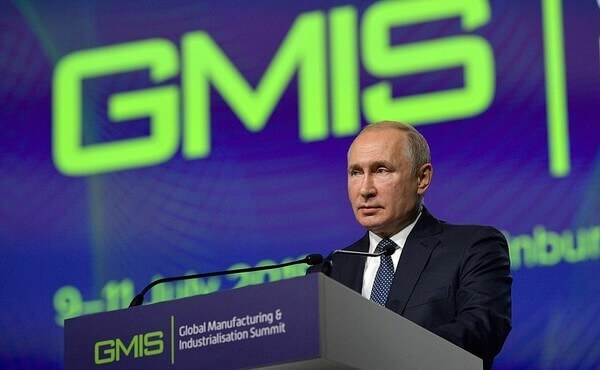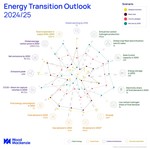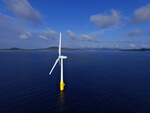News Release from windfair.net
Wind Industry Profile of
Russia Wants to Ratify the Paris Climate Agreement
The responsible ministries in Russia are to work on a draft law for the ratification of the Paris Climate Agreement by 1 September. One of the aims is to reduce the country's greenhouse gas emissions by 2050 in order to mitigate the consequences of climate change. This was announced by the Kremlin in a communiqué.
The increase in the concentration of greenhouse gases in the atmosphere is leading to a gradual increase in the temperature on Earth - in the last 40 years, the temperature on the planet has risen by about one degree, according to the communiqué. This is mainly due to the growing demand for electricity, which has increased by almost 85% over the last 20 years and continues to do so. By 2040, electricity consumption will increase by 54 to 80% compared to 2015.
However, more and more countries are investing in CO2-free technologies in various industries, whether in the manufacture of cars with limited CO2 emissions, shipbuilding or aviation. Russia must take these trends into account and play its part both in creating additional growth incentives for the economy and in protecting national interests.
A further passage from the Kremlin communication makes it clear that Russia's main focus in ratifying the treaty is on economic interests. It reads: "At the same time, the ratification of the document gives Russia the opportunity to participate in all future negotiation processes and to protect its own interests in international fora in which the rules for reducing CO2 emissions are defined and corresponding documents are developed".
So far, Russia is one of the 13 states (out of 197) that have not yet ratified the Paris Climate Agreement. In this illustrious circle, which also includes Turkey, Iran and Angola, Russia is by far the largest emitter of CO2.

Worries about nature: Russian President Vladimir Putin (Image: GMIS)
Russian President Vladimir Putin, meanwhile, described the effects of the climate crisis, which are also becoming increasingly apparent in Russia, at the 'Global Summit on Production and Industrialization' in Ekaterinburg last week. "The deterioration of nature and the climate is continuing," Putin said. "And droughts, crop failures and natural disasters are becoming more and more acute."
He did, however, restrict that the use of renewable energies shouldn't lead to a complete abandonment of nuclear or fossil energy: "Absolute, blind trust in simple, spectacular but ineffective solutions leads to problems. By this I mean approaches such as the complete abandonment of nuclear or hydrocarbon energy, for example the exclusive use of existing alternative energy sources".
Wind energy in particular seems to be a thorn in his side. In his argumentation he reminds of his U.S. counterpart, President Donald Trump, who also doesn't miss an opportunity to talk about the "ugly turbines that deface the landscape". Putin, too, used his speaking time at the summit to make a statement against wind power - although he was less concerned with the effects on people than on nature.
"Everyone knows that wind energy is good, but does anyone think of the birds? How many birds die?" But that's not all, Putin showed himself to be an animal lover who also has an eye on the very small species: "The turbines tremble so strongly that even worms come out of the ground. It's not a joke, no, it's a serious consequence of this modern form of energy production. I'm not saying that it shouldn't be developed, but we shouldn't forget the problems associated with it".
Where he gets these research results from, however, is unknown. So far, there is no international research on worms and wind turbines.
- Author:
- Katrin Radtke
- Email:
- press@windfair.net
- Keywords:
- Russia, wind energy, climate change, CO2, emittant, summit, Paris Climate Agreement, ratification, nuclear energy, fossil fuels, renewables

























